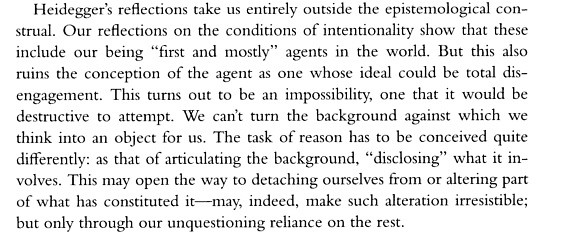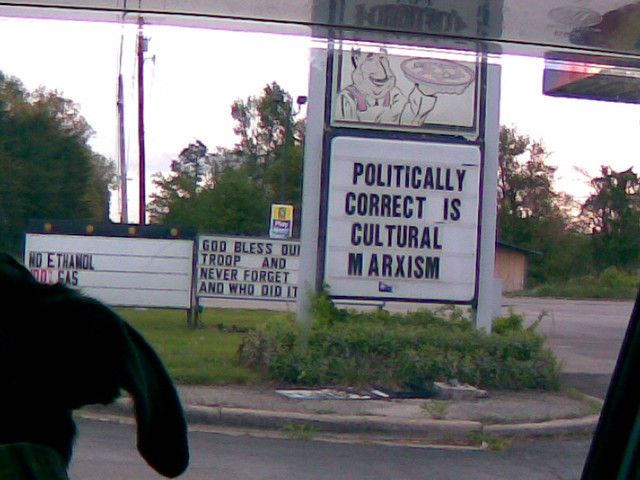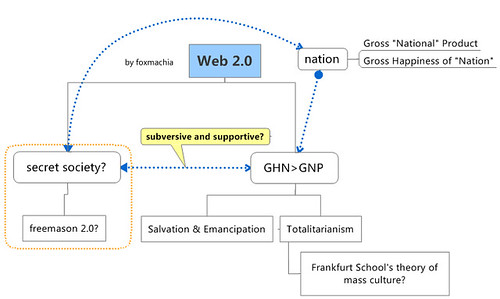

"Cultural Marxism," described as a conspiratorial attempt to wreck American culture and morality, is the newest intellectual bugaboo on the radical right. Surprisingly, there are signs that this bizarre theory is catching on in the mainstream.
The phrase refers to a kind of "political correctness" on steroids a covert assault on the American way of life that allegedly has been developed by the left over the course of the last 70 years. Those who are pushing the "cultural Marxism" scenario aren't merely poking fun at the PC excesses of the "People's Republic of Berkeley," or the couple of American cities whose leaders renamed manholes "person-holes" in a bid to root out sexist thought.
Right-wing ideologues, racists and other extremists have jazzed up political correctness and repackaged it in its most virulent form, as an anti-Semitic theory that identifies Jews in general and several Jewish intellectuals in particular as nefarious, communistic destroyers. These supposed originators of "cultural Marxism" are seen as conspiratorial plotters intent on making Americans feel guilty and thus subverting their Christian culture.
In a nutshell, the theory posits that a tiny group of Jewish philosophers who fled Germany in the 1930s and set up shop at Columbia University in New York City devised an unorthodox form of "Marxism" that took aim at American society's culture, rather than its economic system. (2012)
Darn that
Kulturbolschewismus ("Cultural Bolshevism"). And no differently than during the interwar period, those who would use the term says more about their own ideology than those who become tarred with the label. That does not mean to say that there aren't folks predisposed to police arbitrary sign systems with equally random ethics in DK without any sense of
1970s irony.
Yet, it's never been a problem, this cultural marxism - it is heuristic and no postulation of epistemological breaks/brakes will stop a reduction of agency to the human over the natural or the cultural. And yet class analysis or social division has remained a problematic issue as though being Bougy or simply petit-Bougy was a bad thing for lumpenproletarians. Such labeling comes to its overlap in the term "cultural marxism" like it was a bad thing, the interest in Frankfurt School Critical Theory. It became incorporated into other historical developments such as the 1960s Birmingham School of Cultural Studies. It does not compromise commitments to class analysis or syndicalist commitments to the continuing class struggle; rather it provides methods to assess the inevitable problems of literacy and development and the fractures among class affiliations.
"The danger the corporate state faces does not come from the poor. The poor, those Karl Marx dismissed as the Lumpenproletariat, do not mount revolutions, although they join them and often become cannon fodder. The real danger to the elite comes from déclassé intellectuals, those educated middle-class men and women who are barred by a calcified system from advancement. Artists without studios or theaters, teachers without classrooms, lawyers without clients, doctors without patients and journalists without newspapers descend economically. They become, as they mingle with the underclass, a bridge between the worlds of the elite and the oppressed. And they are the dynamite that triggers revolt. http://en.wikipedia.org/...
It divides those six-figure income Marxists driving their Beemers represented by Renato Salvatori's character in
Bertolucci's Luna from the rest of us and even provides some means for reflection upon OWS. Reflective disclosure is possible and it can be in the service of political economy rather than neoclassical economics
warmed over, with strange neoliberal bedfellows everywhere and subsequent conspiracy theories - ZOMG - my late father may even have been a Freemason,
Heidegger was a Godwin party member, Althusser murdered his wife, déclassé intellectuals are
inorganic, male-identified women sleep with the enemy, and there are class traitors everywhere!
During the eighties, anti-authoritarian socialists in the United Kingdom and New Zealand criticised the rigid and determinist view of popular culture deployed within the Frankfurt School theories of capitalist culture, which seemed to preclude any prefigurative role for social critique within such work. They argued that EC Comics often did contain such cultural critiques. Recent criticism of the Frankfurt School by the libertarian CATO Institute focused on the claim that culture has grown more sophisticated and diverse as a consequence of free markets and the availability of niche cultural text for niche audiences
As another hypothetical example of cultural contrasts, there is the notion of Gross National Happiness GNH which in many ways is the most radical version of economic critique, relying on the purely subjective that suppresses notions of class division in favor of speculation that opens itself to even more fanciful notions of agency and structure.
From an economic perspective, critics state that because GNH depends on a series of subjective judgments about well-being, governments may be able to define GNH in a way that suits their interests. Economics professor Deirdre McCloskey criticizes such measurements as unscientific, saying that "Recording the percentage of people who say they are happy will tell you... [just] how people use words," making the analogy that society could not "base physics on asking people whether today was 'hot, nice, or cold'". McCloskey also criticizes the anti-consumerism of the movement to base government policy on happiness, asserting that "High culture has in fact always flourished in eras of lively commerce, from fifth-century Greece through Song China and Renaissance Italy down to the Dutch Golden Age."


It's clear that "cultural marxism" can be associated with a wide range of anti-materialist analysis that dissolves any possible realism without disclosing the dialectical possibilities of political or social change, even to the wackiness of conspiracy theories.
In order to prevent that dissolution, Kompridis (2006) suggests that critical theory should "reinvent" itself as a "possibility-disclosing" enterprise, incorporating Heidegger's controversial insights into world disclosure and drawing from the sources of normativity that he feels were blocked from critical theory by its recent change of paradigm. Calling for what Charles Taylor (2012) has named a "new department" of reason, with a possibility-disclosing role that Kompridis calls "reflective disclosure", Kompridis argues that critical theory must embrace its neglected German romantic inheritance and once again imagine alternatives to existing social and political conditions, "if it is to have a future worthy of its past."

For this passage, containing Engels's theoretical solution to the problem of the basis for the determination 'in the last instance' by the economy, is, in fact, independent of the Marxist theses that Engels was counter-posing to 'economist' dogmatism....
Of course, once again, there had certainly been the semblance of a problem for bourgeois ideology: to rediscover the world of history on the basis of principles (the homo-economicus and his political and philosophical avatars) which, far from being principles of scientific explanation, were, on the contrary, merely a projection of its own image of the world, its own aspirations, its own ideal programme (a world which would be reducible to its essence: the conscious will of individuals, their actions and their private undertakings . . .). But once this ideology without which this particular problem could not have been Dosed, had been swept aside by Marx, how could this problem still remain the problem posed by this ideology, that is, how could it still remain a problem?

Structure in dominance should not be confused with the distinct but closely related term determination in the last instance , by which Althusser means the primacy of the economic instance or mode of production within any social formation. Althusser does employ the metaphorical notions of base and superstructure but not in a reflectionist sense: "the economy determines for the non-economic elements their respective degrees of autonomy/dependence in relation to itself and to one another, thus their differential degrees of specific effectivity. It can determine itself as dominant or not-dominant at any particular time, and in the latter case it determines which of the elements is to be dominant" (Althusser 1969, 255).
Clearly, determination in the last instance is not intended as a unilateral relationship of causality. The mode of production is the "deep structure" or base of the social formation in the sense that it defines fully the economic instance even in social formations where the forces and relations of production are institutionally separated. Determination in the last instance by the economy means that its primacy establishes certain boundaries or limits to the autonomy of the political and ideological functions. The economy does not select particular political or ideological institutions; it excludes those institutions incompatible with the existing forces and relations of production. The primacy of the economy does not, in other words, explain the political and ideological instances in such a way that they can be simply read off or deduced from the structure of the mode of production.
Economic determination in the last instance does not indicate that there ever was or ever will be some point (origin, goal) when the economy was or will be solely determinant with respect to the other instances. "The economic dialectic is never active in the pure state; in History, these instances, the superstructures, etc.âare never seen to step respectfully aside when their work is done, or when the Time comes, as his pure phenomena, to scatter before His Majesty the Economy as he strides along the royal road of the Dialectic. From the first moment to the last, the lonely hour of the 'last instance' never comes" (Althusser 1969, 113).
Althusser is not simply playing fast and loose with words in asserting determination in the last instance while insisting that "the last instance never comes." He is attempting to define an alternative position between two equally unacceptable versions of causality: transitive causality, which can think only in terms of an endless chain of cause and effect (X happened because of Y, Y because of Z , and so on to infinity), and expressive causality, which reduces the effectivity of the elements to reflections of an essence (X, Y , and Z are all really manifestations of A , the single, independent, and omnipresent variable).
Althusser's position is a realist one: structural forces or laws are at work in social formations, but unlike the natural sciences, historical science can never experimentally isolate them from each other. The phrase "the last instance never comes" recognizes what Althusser calls the "ever pregivenness" of social structures. This means a social formation is "always already there" as the copresence of all its elements, their specific effectivities, and the relations of dominance and subordination that obtain between them. The primacy of the economy is always already there in the historical conditions of existence of the present conjuncture, yet the primacy of the economic function is exerted only in the context of a parallelogram of forces within which the economic itself is articulated.
http://publishing.cdlib.org/...



